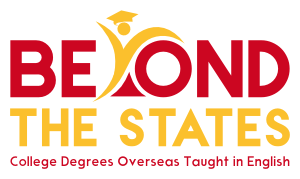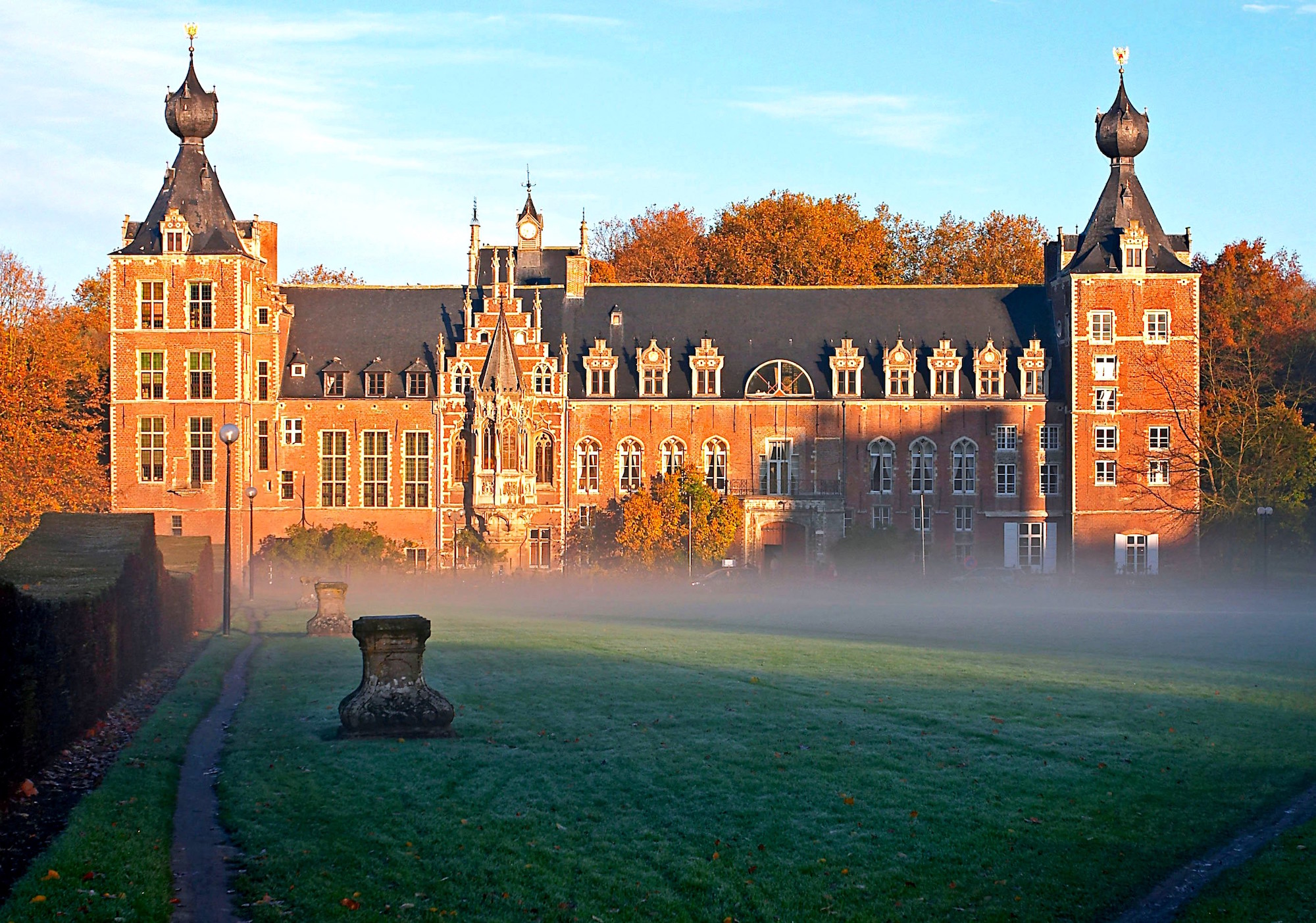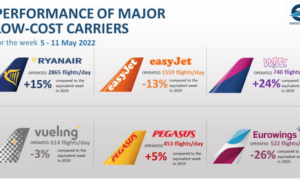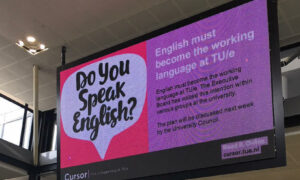The entrepreneurial couple who created Beyond the States know few things make American parents as neurotic as the prospect of finding the right college for their children.
 We start obsessing about selecting the right school. How do we insure that he/she can even qualify for that “right school?” How do we maximize his/her [a] AP-level high school classes? [b] ability to score well in the college prep exams? [c] all-important list of “activities” – teams, clubs, summer jobs, part-time jobs, charitable community work, travels to the right foreign countries?
We start obsessing about selecting the right school. How do we insure that he/she can even qualify for that “right school?” How do we maximize his/her [a] AP-level high school classes? [b] ability to score well in the college prep exams? [c] all-important list of “activities” – teams, clubs, summer jobs, part-time jobs, charitable community work, travels to the right foreign countries?
And then, when all those questions – and countless others – have been addressed, they’re asking themselves, “How in the world can we afford all this?”
If all of this paralyzes the typical American parents of a high school junior or senior in the U.S., what about its effect on the American parents living in Europe? Will U.S. universities laud the applicant’s overseas adventure? Or will they question the value of a French or German or Dutch high school education?
Jennifer and Tom Viemont are typical of parents facing this challenge. The Chapel Hill, N.C., couple has two children – one in high school, one not far behind. But rather than being overwhelmed by all these questions, they tackled the challenge head-on and have some ready-set answers they’ve turned into an online business. Their thorough research concluded that hundreds of universities in Europe offer a whole menu of “best of” options.
Inveterate travelers, they began visiting colleges and universities throughout Europe, talked to educators and admissions officers, and developed a data base of more than 1,500 programs at 351 European schools. These schools meet the criteria of quality secondary education, preparation for life after university, far simpler application processes and far, far, far less costly tuitions.
They’ve put this all together – lists, useful information, thoughtful essays, question-and- answer opportunities and consulting services – into their web site, Beyond the States.
Members can access the searchable data base, plus certain special sections – like a “Jen Says” account of things she’s seen on her various campus visits and monthly group question-and-answer calls. Non-members can access free webinars and blog posts. And anyone can hire the Viemonts for personal consulting.
The Number One most astounding conclusion the Viemonts made is the difference in tuitions. Tuition at the private Yale University in New Haven, Conn., is more than $47,000 a year. Tuition at that state’s more-affordable public university, the University of Connecticut, is more than $13,000 a year for state residents, and nearly $35,000 a year for out-of- state applicants.
Meaning an American freshman and his/her parents can expect to spend between $50,000 and nearly $200,000 on a four-year college education.
No wonder this year’s Democratic candidates for president aroused such passion with their calls for education loan reform and free or nearly free college educations. Who isn’t petrified by this rocket launch of college costs that has far exceeded the U.S. inflation rates of the last 10 or 20 or 50 years?
Compare this with the costs at Katholieke Universiteit Leuven in Belgium, one of the European schools in the Viemonts’ data base. Annual tuition at this highly regarded Flanders college, ranked in the Top 100 of all colleges in the world (the London-based Times Higher Education Survey ranks it No. 35), is $1,000.
Since tuition is not everything, the Viemonts recently compared the total costs of going to school at KU Leuven vs. the costs at their own hometown state and private universities, the University of North Carolina and Duke University.
Including not only tuition per year but also housing, living expenses, books, health insurance, various fees and travel from home, after four years a UNC student and his/her family would end up spending $90,560; the Duke student and family would spend $283,608.
And, after four years, the KU Leuven student would have been out in the workforce earning money – or already on to a postgraduate degree – because here’s one of the big kickers about most European universities: They’re three-year programs.
So the KU Leuven student and family would have spent only $44,820 upon graduation – half the cost of the North Carolina student, 15 percent of the Dukie’s outlay!
And, by the way, notes Jennifer Viemont, “in the United States, more than 50 percent of kids are taking six years to get their bachelors degrees.” To answer your next question, yes, the Viemonts included in their calculus the $4,000 it would cost the KU Leuven student to travel back to his/her American home every year. (Note to expats: Take that $4,000-or-so travel cost and shift it to the column under the U.S. college, and the European savings are even more impressive.)
Of course, the KU Leuven tuition isn’t free. But there are more than 40 European public universities that do offer international students a full bachelor’s degree program tuition-free. And there are also other financial opportunities.
“Many schools offer tuition waivers and scholarships for international students that are either need-based, merit-based, or a combination of the two,” Jennifer Viemont writes in one of her blog posts. “These may be a small tuition reduction all the way up to a full scholarship that includes housing costs as well.”
It’s all in the Viemonts’ data base.
Also in the data base, says Jennifer Viemont, are the various American Universities in nearly every large European city. But she doesn’t necessarily recommend them, fine schools though some of them may be. First, they’re much more costly than the other European universities that the Viemonts studied. The American University of Paris, for example, charges 28,000 euros a year – about $31,500. Nearly all of them have tuitions of over $20,000, and they’re mostly four-year programs.
Second, these American universities don’t offer the multi-cultural experience of most of the other schools. “It’s like living in a bubble, you just don’t integrate with the local culture,” says Viemont, “We don’t encourage those.”
The Viemonts studied only European schools that offer English-language programs, so your student doesn’t have to worry about competing for grades in an unfamiliar tongue. (Though, of course, American students are encouraged to learn the local language.) Some are even required to. And if the field of studies is regional – like a program in International Business with a focus on the Middle East – the student will study Farsi, Arabic, Hebrew, Turkish or, who knows, maybe even Crimean Tatar.
The enrollment processes are also much different in Europe than what the American student and family encounter in the U.S. Gone, for the most part, are excruciating examinations of class rank, number of Advanced Placement (AP) courses taken, SAT scores, jobs, activities and thoughtful essays on “how you (prospective college student) would like to make the world a better place.”
“It’s a rolling system in Europe,” says Viemont. “If you meet the basic criteria and there’s space, you’re in.”
How about the second-most- important parental concern: How employable is a graduate with a European diploma? Since the Viemonts only began putting their data base together a year and a half ago, they don’t yet have real-world calculations on graduates’ experiences. But Jennifer Viemont is confident that European studies can only be a benefit – especially for a job in the U.S.
“Coming into the job market, the student needs a competitive edge,” she notes, “and the required internship European students are required to take, the experience of living abroad, speaking a language you’ve acquired, all of that sets you apart,” she says. “The trait of navigating unfamiliar circumstances is only something a prospective employer will look positively upon.”

















